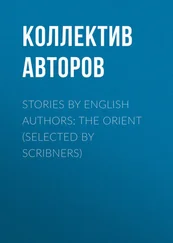Коллектив авторов - Stories by English Authors - Germany
Здесь есть возможность читать онлайн «Коллектив авторов - Stories by English Authors - Germany» — ознакомительный отрывок электронной книги совершенно бесплатно, а после прочтения отрывка купить полную версию. В некоторых случаях можно слушать аудио, скачать через торрент в формате fb2 и присутствует краткое содержание. Жанр: foreign_antique, foreign_prose, на английском языке. Описание произведения, (предисловие) а так же отзывы посетителей доступны на портале библиотеки ЛибКат.
- Название:Stories by English Authors: Germany
- Автор:
- Жанр:
- Год:неизвестен
- ISBN:нет данных
- Рейтинг книги:4 / 5. Голосов: 1
-
Избранное:Добавить в избранное
- Отзывы:
-
Ваша оценка:
- 80
- 1
- 2
- 3
- 4
- 5
Stories by English Authors: Germany: краткое содержание, описание и аннотация
Предлагаем к чтению аннотацию, описание, краткое содержание или предисловие (зависит от того, что написал сам автор книги «Stories by English Authors: Germany»). Если вы не нашли необходимую информацию о книге — напишите в комментариях, мы постараемся отыскать её.
Stories by English Authors: Germany — читать онлайн ознакомительный отрывок
Ниже представлен текст книги, разбитый по страницам. Система сохранения места последней прочитанной страницы, позволяет с удобством читать онлайн бесплатно книгу «Stories by English Authors: Germany», без необходимости каждый раз заново искать на чём Вы остановились. Поставьте закладку, и сможете в любой момент перейти на страницу, на которой закончили чтение.
Интервал:
Закладка:
“I had heard very little about her, only my father had sometimes mentioned his cousin to me; they had once been betrothed,” the stranger continued. “But when I reached Utrecht I found she was dead – two years dead; but we had never heard of it.”
“Dear, dear, dear!” exclaimed the professor, pityingly. “Well, you had better let Koosje put you to bed, and we will see what can be done for you in the morning.”
“Am I to make up a bed?” Koosje asked, following him along the passage.
The professor wheeled round and faced her.
“She had better sleep in the guest room,” he said, thoughtfully, regardless of the cold which struck to his slippered feet from the marble floor. “That is the only room which does not contain specimens that would probably frighten the poor child. I am very much afraid, Koosje,” he concluded, doubtfully, “that she is a lady; and what we are to do with a lady I can’t think.”
With that the old gentleman shuffled off to his cosey room, and Koosje turned back to her kitchen.
“He’ll never think of marrying her,” mused Koosje, rather blankly. If she had spoken the thoughts to the professor himself, she would have received a very emphatic assurance that, much as the study of osteology and the Stradivari had blinded him to the affairs of this workaday world, he was not yet so thoroughly foolish as to join his fossilised wisdom to the ignorance of a child of sixteen or seventeen.
However, on the morrow matters assumed a somewhat different aspect. Gertrude van Floote proved to be not exactly a gentlewoman. It is true that her father had been a well-to-do man for his station in life, and had very much spoiled and indulged his one motherless child. Yet her education was so slight that she could do little more than read and write, besides speaking a little English, which she had picked up from the yachtsmen frequenting her native town. The professor found she had been but a distant relative of the Mevrouw Baake, to seek whom she had come to Utrecht, and that she had no kinsfolk upon whom she could depend – a fact which accounted for the profusion of her jewellery, all her golden trinkets having descended to her as heirlooms.
“I can be your servant, mynheer,” she suggested. “Indeed, I am a very useful girl, as you will find if you will but try me.”
Now, as a rule, the professor vigorously set his face against admitting young servants into his house. They broke his china, they disarranged his bones, they meddled with his papers, and made general havoc. So, in truth, he was not very willing to have Gertrude van Floote as a permanent member of his household, and he said so.
But Koosje had taken a fancy to the girl; and having an eye to her own departure at no very distant date, – for she had been betrothed more than two years, – she pleaded so hard to keep her, promising to train her in all the professor’s ways, to teach her the value of old china and osteologic specimens, that eventually, with a good deal of grumbling, the old gentleman gave way, and, being a wise as well as an old gentleman, went back to his studies, dismissing Koosje and the girl alike from his thoughts.
Just at first Truide, poor child, was charmed.
She put away her splendid ornaments, and some lilac frocks and black skirts were purchased for her. Her box, which she had left at the station, supplied all that was necessary for Sunday.
It was great fun! For a whole week this young person danced about the rambling old house, playing at being a servant. Then she began to grow a little weary of it all. She had been accustomed, of course, to performing such offices as all Dutch ladies fulfil – the care of china, of linen, the dusting of rooms, and the like; but she had done them as a mistress, not as an underling. And that was not the worst; it was when it came to her pretty feet having to be thrust into klompen, and her having to take a pail and syringe and mop and clean the windows and the pathway and the front of the house, that the game of maid-servant began to assume a very different aspect. When, after having been as free as air to come and go as she chose, she was only permitted to attend service on Sundays, and to take an hour’s promenade with Dortje, who was dull and heavy and stupid, she began to feel positively desperate; and the result of it all was that when Jan van der Welde came, as he was accustomed to do nearly every evening, to see Koosje, Miss Truide, from sheer longing for excitement and change, began to make eyes at him, with what effect I will endeavour to show.
Just at first Koosje noticed nothing. She herself was of so faithful a nature that an idea, a suspicion, of Jan’s faithlessness never entered her mind. When the girl laughed and blushed and dimpled and smiled, when she cast her great blue eyes at the big young fellow, Koosje only thought how pretty she was, and it was just a thousand pities she had not been born a great lady.
And thus weeks slipped over. Never very demonstrative herself, Koosje saw nothing, Dortje, for her part, saw a great deal; but Dortje was a woman of few words, one who quite believed in the saying, “If speech is silver, silence is gold;” so she held her peace.
Now Truide, rendered fairly frantic by her enforced confinement to the house, grew to look upon Jan as her only chance of excitement and distraction; and Jan, poor, thick-headed noodle of six feet high, was thoroughly wretched. What to do he knew not. A strange, mad, fierce passion for Truide had taken possession of him, and an utter distaste, almost dislike, had come in place of the old love for Koosje. Truide was unlike anything he had ever come in contact with before; she was so fairy-like, so light, so delicate, so dainty. Against Koosje’s plumper, maturer charms, she appeared to the infatuated young man like – if he had ever heard of it he would probably have said like a Dresden china image; but since he had not, he compared her in his own foolish heart to an angel. Her feet were so tiny, her hands so soft, her eyes so expressive, her waist so slim, her manner so bewitching! Somehow Koosje was altogether different; he could not endure the touch of her heavy hand, the tones of her less refined voice; he grew impatient at the denser perceptions of her mind. It was very foolish, very short-sighted; for the hands, though heavy, were clever and willing; the voice, though a trifle coarser in accent than Truide’s childish tones, would never tell him a lie; the perceptions, though not brilliant, were the perceptions of good, every-day common sense. It really was very foolish, for what charmed him most in Truide was the merest outside polish, a certain ease of manner which doubtless she had caught from the English aristocrats whom she had known in her native place. She had not half the sterling good qualities and steadfastness of Koosje; but Jan was in love, and did not stop to argue the matter as you or I are able to do. Men in love – very wise and great men, too – are often like Jan van der Welde. They lay aside pro tem. the whole amount, be it great or small, of wisdom they possess. And it must be remembered that Jan van der Welde was neither a wise nor a great man.
Well, in the end there came what the French call un denouement , – what we in forcible modern English would call a smash
Конец ознакомительного фрагмента.
Текст предоставлен ООО «ЛитРес».
Прочитайте эту книгу целиком, купив полную легальную версию на ЛитРес.
Безопасно оплатить книгу можно банковской картой Visa, MasterCard, Maestro, со счета мобильного телефона, с платежного терминала, в салоне МТС или Связной, через PayPal, WebMoney, Яндекс.Деньги, QIWI Кошелек, бонусными картами или другим удобным Вам способом.
Интервал:
Закладка:
Похожие книги на «Stories by English Authors: Germany»
Представляем Вашему вниманию похожие книги на «Stories by English Authors: Germany» списком для выбора. Мы отобрали схожую по названию и смыслу литературу в надежде предоставить читателям больше вариантов отыскать новые, интересные, ещё непрочитанные произведения.
Обсуждение, отзывы о книге «Stories by English Authors: Germany» и просто собственные мнения читателей. Оставьте ваши комментарии, напишите, что Вы думаете о произведении, его смысле или главных героях. Укажите что конкретно понравилось, а что нет, и почему Вы так считаете.












